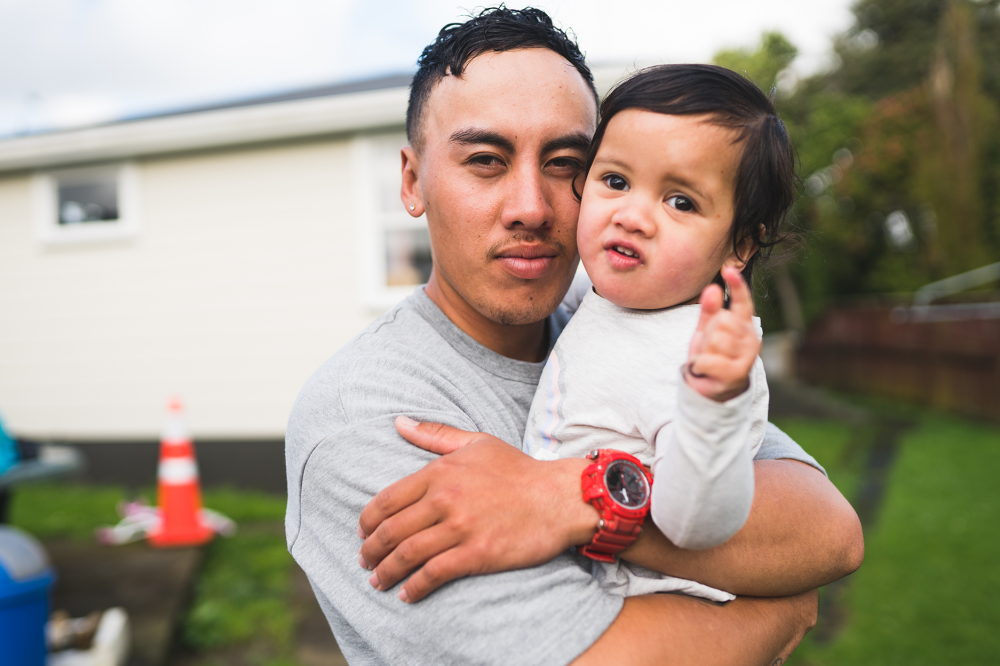Member Snapshot 2021: Assessing the Financial Health Maturity of Financial Institutions
Many financial services organizations in the United States are taking action to improve their customers’ and employees’ financial health. Through the Financial Health Maturity Assessment Program, this report assesses the survey responses of 43 Financial Health Network Members to identify key opportunities for financial institutions to advance their financial health strategies. Learn about the actions these Members are taking within each pillar and phase of the FinHealth MAP, and gain insights into the areas they still need to prioritize.
Financial Health Solutions: Targeting Small-Dollar Savings Suggestions to Low-Balance Customers
In partnership with BECU, the largest credit union in Washington state, this study examines the impact of a new mobile app savings feature, Quick Save, which allows members to spontaneously transfer small amounts to their savings accounts with the swipe of a button.
Financial Data: The Consumer Perspective
While technology-driven financial products, services, and institutions have the potential to benefit consumers, they can also pose new risks due to the increased availability of financial data. To better understand the consumer perspective on the use of financial data, the Financial Health Network fielded a nationally representative survey. The findings in this report describe consumer understanding of practices in the financial data ecosystem, and consumer preferences on how they would like personal data to be treated. These findings can serve as a guide to both industry stakeholders and policymakers as they seek to build trust and ensure that both practice and policy serve consumers.
The Worker Financial Wellness Initiative – Making Workers’ Financial Security and Health a C-Suite Priority
The Worker Financial Wellness Initiative was designed to make workers' financial health a priority for executives. Learn why we believe America's largest companies should conduct a Worker Financial Wellness Assessment. JUST Capital and PayPal, in collaboration with the Financial Health Network and the Good Jobs Institute, have established a new initiative to make workers’ financial security and health a C-suite and investor priority. The organizations are calling on the CEOs of America’s largest companies to conduct a Worker Financial Wellness Assessment as a vital first step toward understanding the financial vulnerability of their workforce. Leading research shows that when workers are more financially secure, key business outcomes such as productivity, customer satisfaction, and employee turnover and engagement also improve.
Pulse Points Spring 2021: The Effects of Stimulus Payments and Tax Refunds on Consumer Finances
Stimulus payments and tax refunds caused account inflows to spike 33% in January and 42% in March, according to analysis from our new Pulse Points series.
Measuring the financial health of Americans
Despite the vast data collected by our government, we lack an accepted method of assessing financial health. Learn why we must measure not only each household’s annual income but also its annual spending, saving, borrowing, and planning habits to identify communities whose financial health is poor, deteriorating, or failing to keep pace with overall improvements.
Fintech as a Solution for Employee Financial Health: Findings from Five Exploratory Studies
We partnered with five fintechs – Brightside, HoneyBee, Manifest, MedPut, and Onward to explore how they’re used and their impact on employees’ financial lives.
Earned Wage Access and Direct-to-Consumer Advance Usage Trends
One in five families has less than two weeks of liquid savings. For the many U.S. workers living paycheck to paycheck, financial distress can occur in the time between earning and accessing wages.
Financial Health and Criminal Justice: The Impacts of Involvement
Across each phase of involvement with the criminal justice system, individuals and their families often experience negative financial health outcomes.
3 Approaches to Using Administrative Data To Measure Financial Health
Choosing the best approach to implement will depend on a company’s proposed use case, available data types, and resources available for analysis.
FinHealth Spend Report 2021
With this report – an evolution of our Financially Underserved Market Size Study – we shed light on how much households paid for a variety of everyday financial products and services in 2020, through lenses of financial health, income, race, and ethnicity.
Designing Digital Financial Advisory Tools for Low-to-Moderate Income Older Adults
Most low-to-moderate income (LMI) older adults are financially challenged to reach retirement and maintain their quality of life as they age. This report showcases research insights and design features that financial service providers can leverage to better support the needs of this group as they approach retirement, produced in partnership with the Institute of Consumer Money Management.
Non-Prime Tracker Report
Provided by Elevate Credit, this research discusses the trend of decreased household income for prime and non-prime folks alike since the pandemic began. With this trend continuing, this decrease is likely to manifest itself within holiday spending.
2020 U.S. Household Bill Pay Market Size & Category Breakout
Provided by doxo, this research reveals that Americans spend $2.75 trillion annually – over one fifth (21%) of all U.S. consumer spending – across 11 primary bill payment categories.
$600 Stimulus Check Impact Report
Provided by doxo, this research examines consumers' reactions toward the $600 stimulus checks they received from the U.S. federal government in 2020.
FinHealth MAP: Building a Business Strategy for Financial Health Impact
Achieving financial health impact doesn’t need to be a journey into the unknown. Learn how the Financial Health Network's FinHealth MAP can help guide your organization.
Financial Health Impact Lab: Innovation Highlights
Developing and testing innovative solutions is key to advancing financial health. That’s the driving force behind the Financial Health Impact Lab – a program that supports the groundbreaking work of organizations at the forefront of financial health measurement, like those profiled here.
Financial Health Solutions: Increasing Savings with a Choice at Onboarding
How can employers encourage workers to build their savings? Even, an employer-based earned-wage access platform, partnered with the Financial Health Leaders Lab to test the impact of presenting savings as an active choice during onboarding to its app.
Financial Health Solutions: Boost Savings with Challenges and Empowering Messages
How can competitions influence more people to build their savings? SaverLife, a nonprofit focused on helping working families to save and invest in their futures, partnered with the Financial Health Leaders Lab to test several approaches.
The Fintech Effect: Consumer Impact and the Future of Finance
In this research, Plaid examines how consumers use fintech, how they feel about it, how it impacts their lives, and how all these sentiments vary across demographic groups.
70% of Voters Say Recent Changes to Their Own Financial Health are Impacting How They Vote
Provided by doxo, this research shows how the personal financial effects of the COVID-19 pandemic are affecting how Americans plan to vote in the 2020 election.
Knowing Better, Doing Better: HR Executives’ Perspectives on Employee Financial Health
Learn insights gathered through a recent survey of HR decision-makers on their awareness of and investments in employee financial health.
U.S. Financial Health Pulse: 2020 Trends Report
Discover key findings from the 2020 U.S. Financial Health Pulse regarding Americans' financial health, including profound disparities across race and ethnicity.
Financial Health Solutions: Using Tax Refunds for Debt Repayment
As consumers around the world struggle to manage debt, learn about the impacts of digital initiatives on debt repayment during tax refund season.
Consumer Financial Data: Legal and Regulatory Landscape
Explore the federal framework governing consumer financial data in the United States and learn the critical questions arising from our changing financial data ecosystem.
Race, Ethnicity, and the Financial Lives of Young Adults
Young adults of color, particularly those who are Black and Latinx, have borne a disproportionate share of economic hardship, as decades of systemic racism have made their communities more vulnerable to the effects of these crises.
What Banks Need From Their Technology Stack to Support Consumer Financial Health
Explore the current landscape and opportunities to help financial institutions overcome these barriers to power effective finhealth tools.
Why Are Some Americans Taking a Chance and Skipping Insurance?
Provided by Franklin Madison, this research delves into the reasons that many Americans forgo life insurance despite buying insurance policies for their homes and automobiles.
2020 Branch Report
Provided by Branch, this research reveals how the coronavirus pandemic has affected the priorities and concerns for workers in sectors such as food service, retail, and healthcare.
The Hidden Costs of Bill Pay Report
Provided by doxo, this research exposes the $577 in hidden costs the average American household pays per year, as well as Americans' top concerns about managing and paying their bills.
Eviction Prevention: Tips for Effective Resident Engagement
Provided by NeighborWorks America, this research examines the most common reasons for loss of rental housing and identifies which resources vulnerable renters need to achieve housing stability.
Balancing Today, Building Tomorrow: How Financially Coping Americans Plan, Save, and Invest
Even before COVID-19, millions of Americans were struggling financially, with more than half the population classified as Financially Coping. As job losses mount, savings are spent down, household debt grows, and investments shrink during the pandemic, Americans need financial support more than ever. This new research sheds light on how providers can support the saving and investing behaviors of Financially Coping consumers, ultimately improving both their immediate and long-term financial health.
Financial Health Can Be So… Retro
Some of the most popular financial health tools introduced by fintechs actually replicate and automate habits and “life hacks” that many households used successfully before the era of electronic banking and payments. These digital “retronovations” bode well for banks and credit unions seeking to offer services that help their customers while also bringing subscription revenues that lessen institutions’ dependence on penalty fees.
Supporting the Financial Lives of America’s Young People
Principal® Foundation research shows that In the United States, 54% of young people between the ages of 18 and 30 report they have hit financial rock bottom – a situation made worse by pandemic-related job losses and college closures. This report shares new potential solutions from the Principal Foundation YouthCan Initiative Innovation Challenge, which supports organizations working to tackle the financial issues facing young people today.
Consumer Financial Hardship Study
Provided by TransUnion, this research examines the financial effects of the coronavirus pandemic, providing essential and timely insights into how consumers have fared.
Beyond Measurement: Insights from the 2019 Financial Health Leaders Program
By measuring financial health, businesses can better understand how customers save, spend, borrow, and plan and develop solutions to meet those needs. This report recognizes how our 2019 Financial Health Leaders used measurement to advance their companies’ strategic priorities, providing insights for organizations as they invest in the financial health of their customers, employees, and communities.
Insurance: The Critical Missing Piece in Financial Well-Being
Provided by Franklin Madison, this research shows that obtaining life insurance can be key to achieving a healthy financial picture and to achieving lasting financial peace of mind.
Fintech Over 50: Designing for Low- to Moderate-Income Older Adults
Despite their widespread use of technology, many adults 50 and older find it challenging to handle day-to-day financial needs online. However, shifting financial management systems online has become critical for older generations that face the greatest health risks from COVID-19. Through qualitative, human-centered research, the Financial Health Network uncovered barriers that inhibit older adults’ adoption of fintech, such as negative stereotypes about their tech savviness and concerns about losing granular control over their finances. This report offers recommendations for fintech customer experience design that financial services innovators can use to overcome these barriers and join older adults as partners on their journey toward financial health.
Introducing Connect2Capital: A New Community of Mission-Driven Small Business Lenders
Provided by CRF USA, this research introduces the Connect2Capital community, designed to level the playing field for small business owners seeking capital from a responsible lender.
Inside the Wallets of Working Americans: The 2nd Annual Salary Finance Report on Employee Financial Stress
Provided by Salary Finance, this research delves into the impact that financial stress has on American workers and how that stress affects their daily productivity in the workplace.
Hawaii Financial Health Pulse: 2019 Survey Results
The majority of Americans are struggling financially – and the everyday economic reality is similar for those who live and work in Hawaii. The Hawaii Financial Health Pulse offers an in-depth view of their financial struggles and coping strategies, along with potential solutions to improve financial health across Hawaii and the rest of the country.
MassMutual Workplace Financial Wellness Study
Provided by MassMutual, this research identifies the percentage of employers who say that their workers are struggling financially and looks at the correlation between employer size and employee financial wellness issues.
Youth Finances in the U.S.: Stories of Adversity and Hope
Provided by Principal Foundation, this research reveals findings about the financial struggles of people ages 15-36 living in the United States, with a focus on low- to moderate-income individuals.
2019 Financially Underserved Market Size Study
Discover opportunities to develop innovative, high-quality solutions to improve financial health for financially underserved consumers in the United States.
Give Consumers Control of Their Financial Data
This research has been provided by Plaid.
Financial Health & Behavioral Change
This research has been provided by FinFit.
U.S. Financial Health Pulse 2019 Trends Report
How is the financial health of Americans changing over time? In a year-over-year analysis, the second annual U.S. Financial Health Pulse report reveals that the majority of Americans are still unprepared for financial shocks.
Insights from the Financial Solutions Lab
This report shares lessons learned over the past five years of close collaboration and support for fintech solutions big and small. Our hope is that it serves as an invitation to join our efforts to improve the financial health of all Americans.
Cross-Sector Solutions: A Guide to Nonprofit-Fintech Partnerships
Learn best practices and real-life success stories from the Financial Health Network’s Nonprofit-Fintech Exchange, a marketplace for exploring collaboration and sharing insights on building high-impact partnerships.
How Industry Executives View Financial Health
In a new survey, the Financial Health Network reveals how financial institutions are approaching financial health as they seek to engage customers meaningfully and profitably.












































